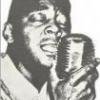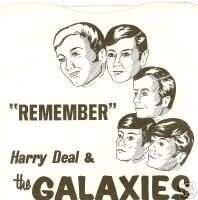The chastening fact is, the first and worst thing one can do with one of your records is take it out of its sleeve. No, I didn't really mean that. (I know full well some records should never be taken out of their sleeves (my son has dozens of them!) What I mean is this.
Records are made of plastic, as you know actually, a copolymer of vinyl chloride and vinyl acetate which forms part of a list of materials we call a triobic series. If any two of these materials come into contact with one another and are then separated, the material higher in the list acquires an electrostatic charge of positive polarity and the one below it in the list gets a negative charge. Since the vinyl used for discs is near the bottom of the list, it follows that most sleeve materials are likely to give the records a charge merely as we remove it; and since most sleeves are made of either paper or another plastic higher in the list, the record ends up negatively charged almost every time. Some plastics are low in the triobic list than vinyl-PTFE is one; but a safe rule is, that the charge will be negative.
Actually, the polarity does not concern us at this stage; its effect does. The charge level can be quite massive given a dry environment, reaching at the moment of removal from the sleeve many kilovolts of magnitude. Not lethal, of course-it is virtually current less; but the effect is to attract within the immediate area of the disc's two surfaces every floating particle of dust in the atmosphere, which will stick there with a tenacity that beats any known glue and defies all attempts at removal by any orthodox cleaning method, which invariably make the situation worse by "topping up" the charge. Handling the disc doesn't help, either: human skin is fairly high in the triobic list. To compound your increasing despair, when you come to play the thing, the movement of the disc beneath the pickup can emulate a miniature Van de Graff generator: minute discharges across the stylus tip result in some pretty unnerving cracks out of your speaker system that sound like lumps of granite in the grooves.
So when I say friends, that static electricity is the major inhibiting factor in getting the best reproduction out of your records, you will appreciate I do not do so without carefully considering all the factors involved.
This is all very well, you may say, but what can one do about it? Well, a number of proprietary remedies are on offer in the hill marketplace;gadgets such as "guns" that generate ionized particles supposed to neutralize the charge. Unfortunately, their efficacy is sometimes questionable, especially when the device generates anions as well as the desirable cations. And in any case the effect can only be short since as soon as the record is handled again it starts to build up yet another charge.
For a long term, or permanent solution we have to turn to chemical means. Again, a number of excellent, usually very expensive proprietary preparations are on the market. They are based on a group of specialized chemicals called surfactants-a fancy name for what you and I call detergents! However, they are as I said, a special group. Surfactants have a number of interesting properties, anyone of which will, if we select care fully, be valuable in our battle with static.
All are in varying degress water-attracting, or hydrophilic, and at one and the same time water-repellant, or hydrophobic. The hydrophobic portion of the molecule may also carry a residual charge. If not, it is nonionic: if it carries a negative charge, then it is anionic; and if the charge is positive, then it is described as being cationic. A number of other subtle properties will determine a particular surfactant's suitability as an anti-static agent. Suffice it to say that some degree of hydrophilic-ness is desirable, since a damp disc is more likely to dissipate a charge quickly; and a surfeit of positive ions to neutralize the disc's negative charge is also desirable.
A number of specialized and highly effective cationic surfactants are available from most large chemical companies. One fact emerged from my experiments, that even a minute amount applied to the surface of the disc is enough for a lifetime cure. Much of the literature suggests that about 0.5% solution is enough to apply an inert film about a molecule thick. The literature also suggests that the material ought ideally to be added to the plastic when the disc is made for 100% effectiveness. It is sad that so few record manufacturers have shown any interest in the durability and quality of their product, although some treated discs have been produced on a limited scale in Japan.
Anyway, another fact emerged. Since the constituents of these commercially available antistatic solutions are so cheap, but the final product is far from being so, The Audio Amateur readers might like to make up their own. All you need is the basic antistatic agent. A 5cc. phial will, in 0.5% solution, make up a liter of antistatic fluid, enough for a very large collection.
The solvent should be easily obtainable, since it is a 1: 1 mix of propanol (or isopropyl alcohol) and pure water. I emphasize pure water, not water from the faucet since this contains salts and other matter. You can use deionised water such as is used for topping up auto batteries; or better still, save the melted ice next time you defrost the freezer or refrigerator. Add the cationic surfactant to this solvent and that's it-nothing more. Don't use pure propanol as the solvent as some commercial preparations do, since this may adversely affect the plasticizors in the record; it also dries just that mite too quickly.
Application is easy after you have removed any surface dirt with a slightly damp, lint less cloth. You'll need a fine spray, such as one used for perfume or deodorant. Just spray a couple of puffs in each half of the disc's surface-no more: it is better to use too little initially, rather than overdo it. Then gently wipe around the surface with a plush record cleaning pad-plenty of those around. Do one side, allow it to dry, and treat the other side.
The next step is to play it. One of the most effective groove cleaners is the stylus tip, provided it doesn't have to compete with a static charge holding the dirt rigidly in the groove. If the treatment has been successful, you may well need to clean the stylus tip half-way through. Each successive playing should make the grooves increasingly less noisy. If you can use a conical stylus rather than one of the elliptical variants, so much the better; they do a much more effective cleaning job.
If you want to check how effective your treatment has been tear a paper napkin into small fragments and lay them on a clean surface. Rub the record gently with a silk or nylon cloth and pass the disc surface near the paper fragments. An untreated disc will end up covered in paper fragments, which will be extraordinarily difficult to remove! If your treatment has been successful, the paper will totally ignore the disc; you may then assume it will need no further attention for the remainder of the record's natural life.
Reginald Williamson
Excerpt from an articleThe Audio Amateur magazine.
February, 1982
Back to Loricraft page
PHEWWW!!
BH



